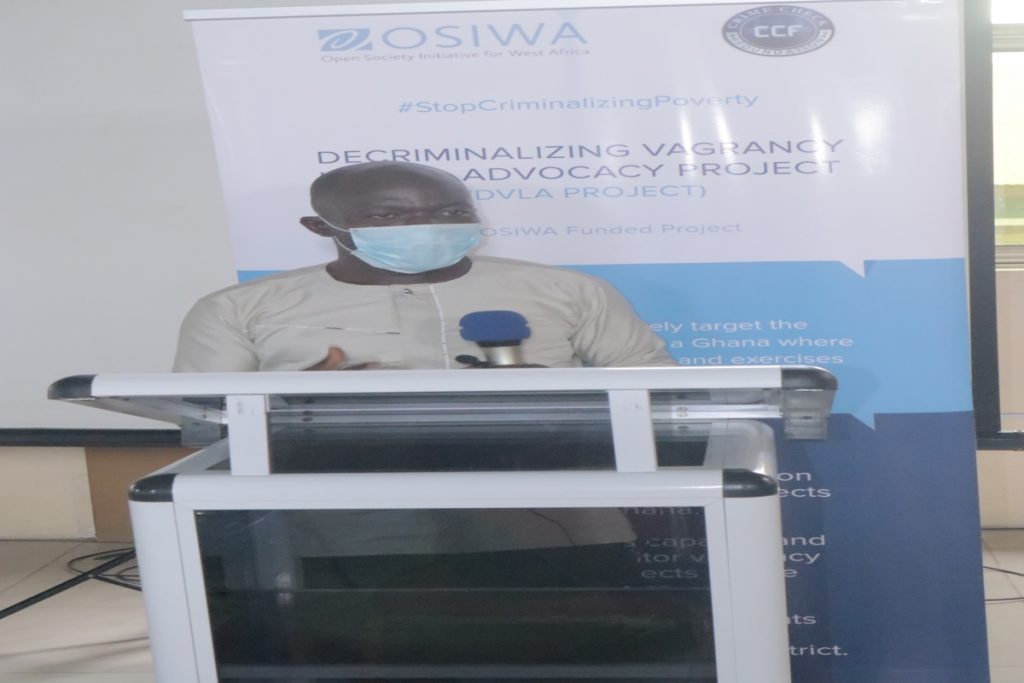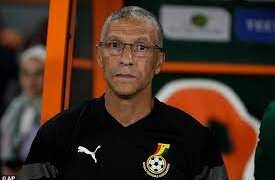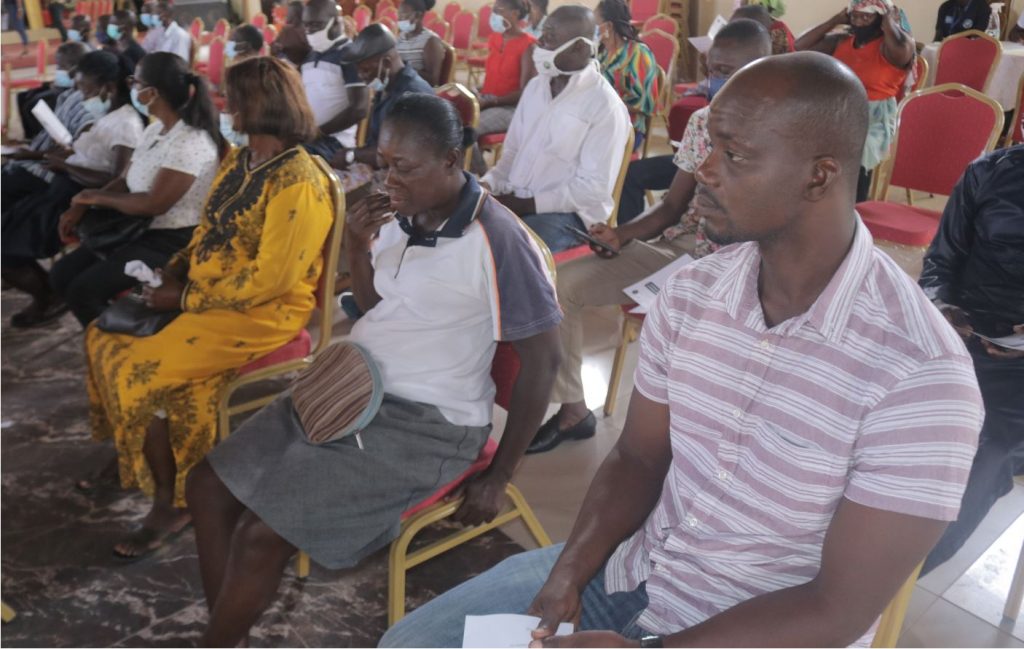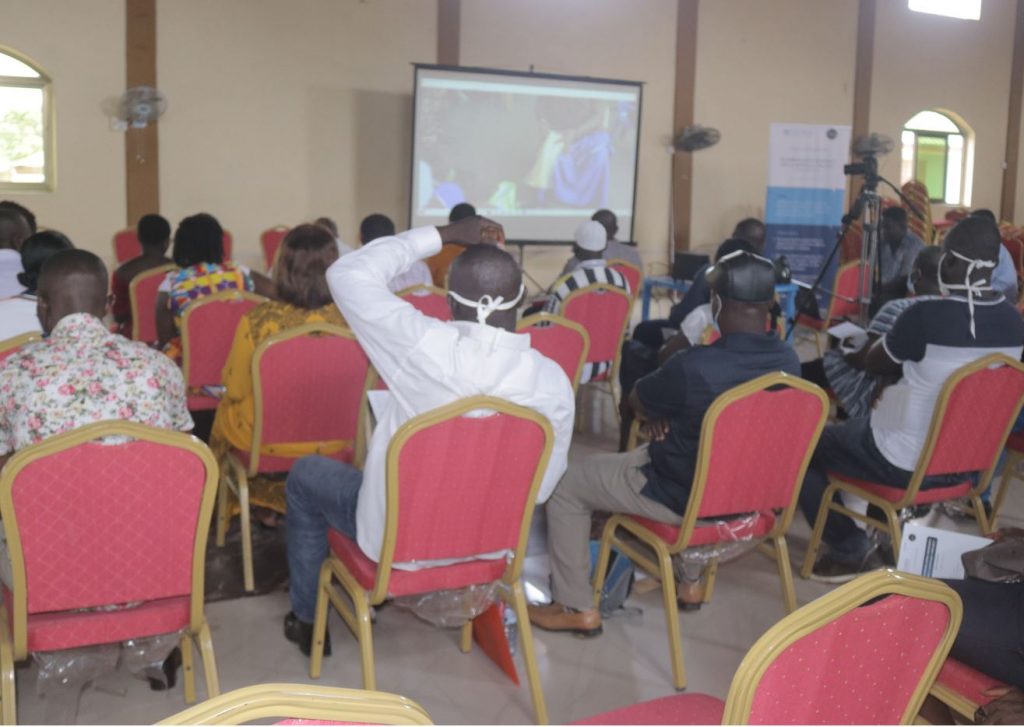Metropolitan, Municipal and District Assemblies (MMDAs) have been urged to tap into the expertise of ‘vagrants’ for local development, rather than treating them as ‘outcasts and criminals’.
An Executive Member of the Landlord’s Association, Mr. Patrick Sam made the suggestion during a sensitization workshop organized on the bye-laws of the Weija-Gbawe Municipal Assembly by Crime Check Foundation (CCF), a crime prevention advocacy organization that uses Life in Prison Documentaries to sensitize the public to the dangers of crime.

Mr. Sam bemoaned how the ‘well-to-do’ in society occupy virtually every available space and leave little for ‘vagrants’ who are unable to carry-out their social and economic activities without constant arrests and harassment from local governments.
He therefore urged the Weija-Gbawe Municipal Assembly to intervene to provide resources that will enable these vagrants to put their talents to use and make sustainable income. This, he noted, is critical in curbing activities of vagrants that appears to pose threat to local development. “It will also reduce their arrests, fines and imprisonment” he stated.
The workshop which sought to increase citizens’ awareness on local bye-laws in order to reduce violations, arrests, fines, and imprisonments of poor and vulnerable citizens, formed part of the implementation of CCF’s ‘Decriminalizing Vagrancy Laws and Advocacy’, an intervention which is supported by the Open Society Initiative for West Africa (OSIWA).
The overall goal of the project is to create an enabling environment for vagrants (the homeless, street hawkers, head porters, vendors, truck pushers, market women, artisans, and other vulnerable groups) to know, claim and exercise their rights and responsibilities in Ghana.
Participants at the event included representatives of petty traders, street hawkers, market women, the homeless, beauticians and hairdressers, transport associations, waste contractors, the Ghana Federation of Disability Organization, head porters, push trucks, the Landlord Associations, other vulnerable groups and the media.
According to Mr. Sam, “as much as you have to create an enabling environment, the talents of vagrants can also be harnessed for development. The Assembly can build a resource centre where vagrants can be trained,” he indicated.
Speaking at the programme, Dr. George Asekere, a Political Science Lecturer at the University of Education, Winneba, called on MMDAs to make laws that are balanced and fair to both the poor and rich.

In his own words, “the local bye-laws must apply uniformly to everybody and must not be seen to favor the rich than the poor and the vulnerable in society, as is the case in the arrests and fines the poor are given because they do not have a sustainable employment and are unable to pay the fines when they violate the laws leading to their imprisonment,” he said.
The Presiding Member of the WGMA, Hon. Oduro Ampaw commended CCF and OSIWA for the initiative, which he believed, will give a voice to vagrants. He urged the Elected Assembly Members and citizens present, to continuously visit the Assembly on matters that are of concern to them in the advancement of the Municipality.
WGMA officials who took turn to explain various bye-laws and laid-down punishments of the Assembly to participants included the Municipal Development Planning Officer, Cynthia Bonsah, the Environmental and Health Officer, Patience Akasreku, and the Municipal Roads Engineer, Ing Daniel Sowah.
About OSIWA
The Open Society Initiative for West Africa (OSIWA), established in 2000, is a grant-making and advocacy organization focused on equality, justice, democratic governance, human rights, and knowledge generation. It is part of the global network of Open Society Foundations spread across 37 countries around the world.



















































